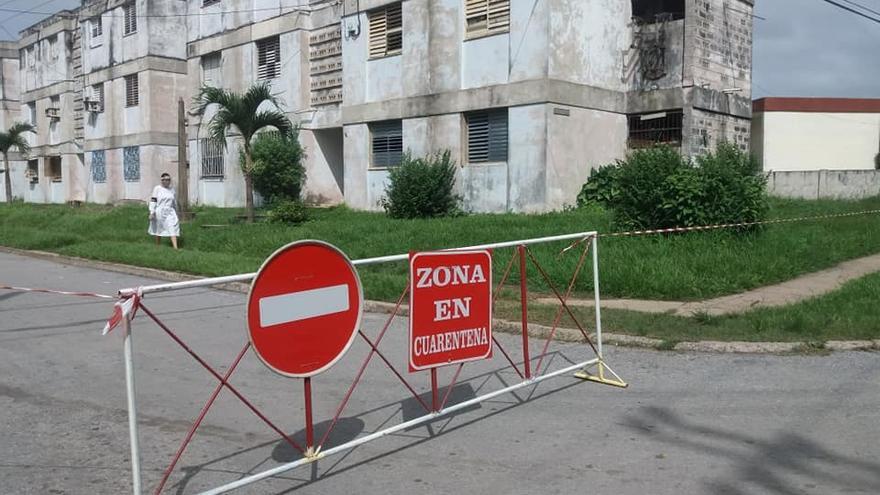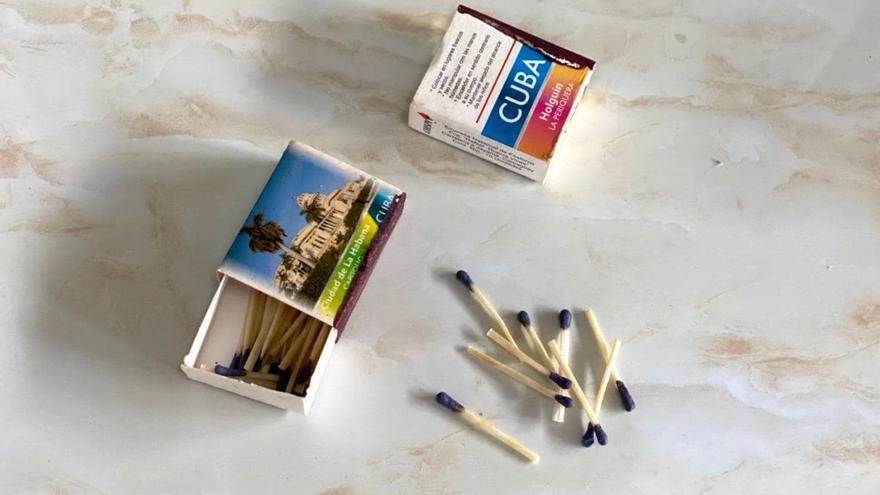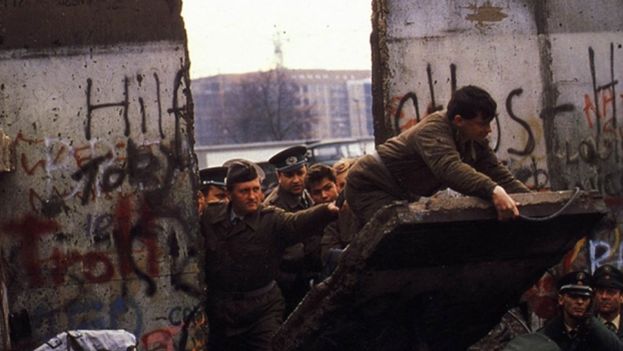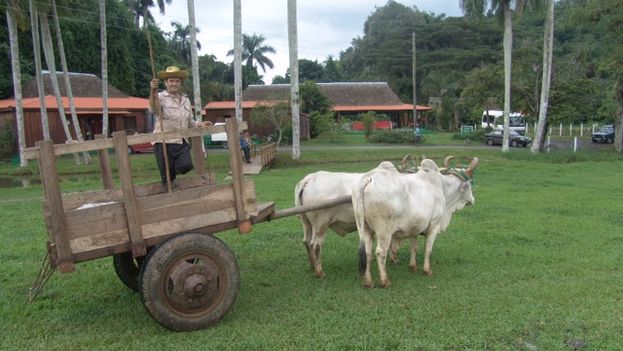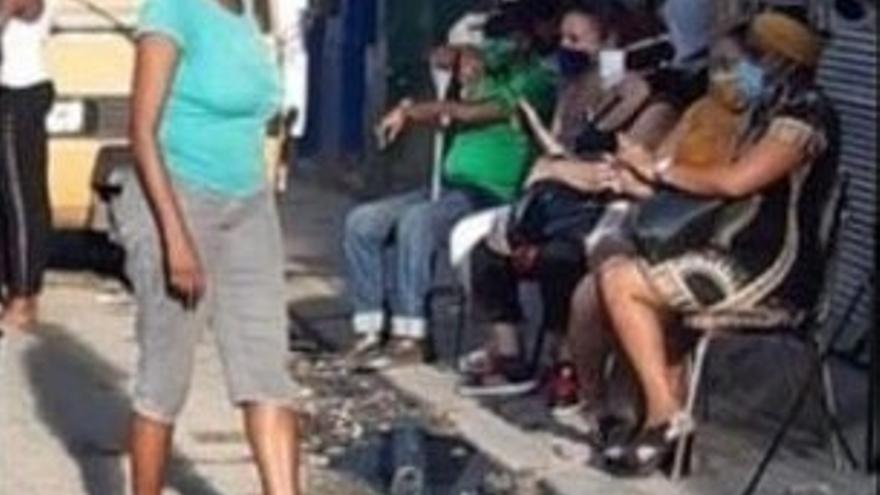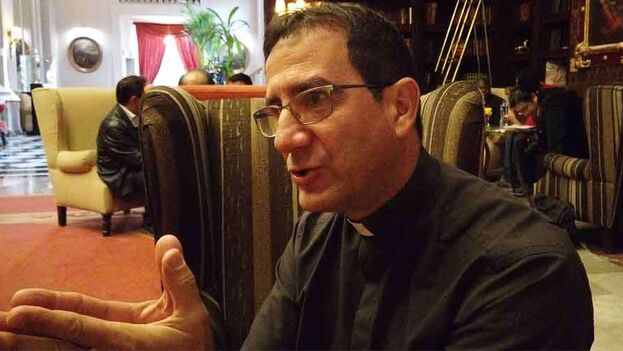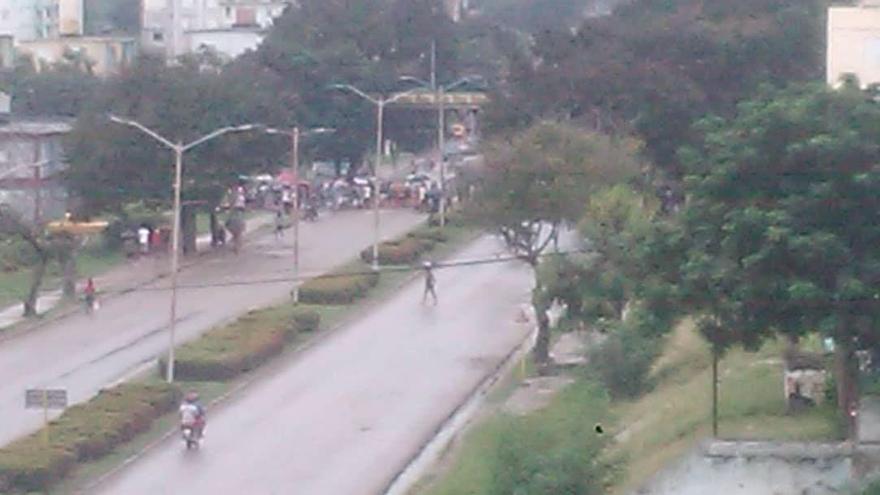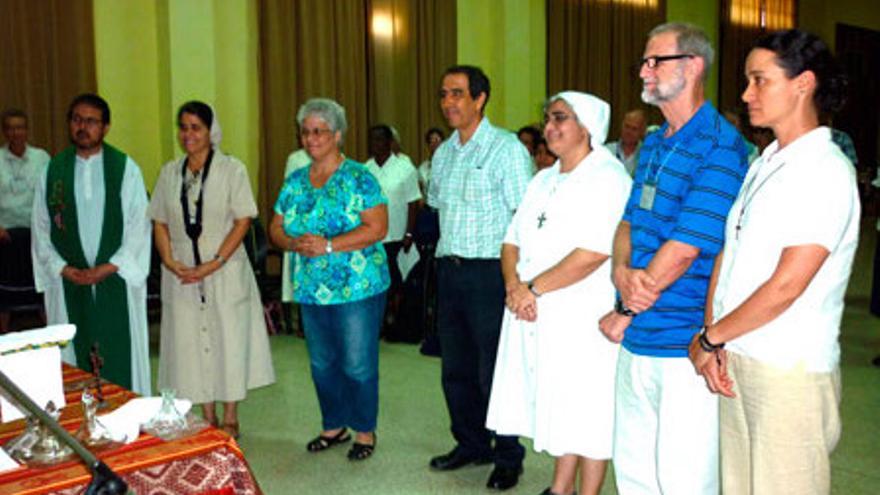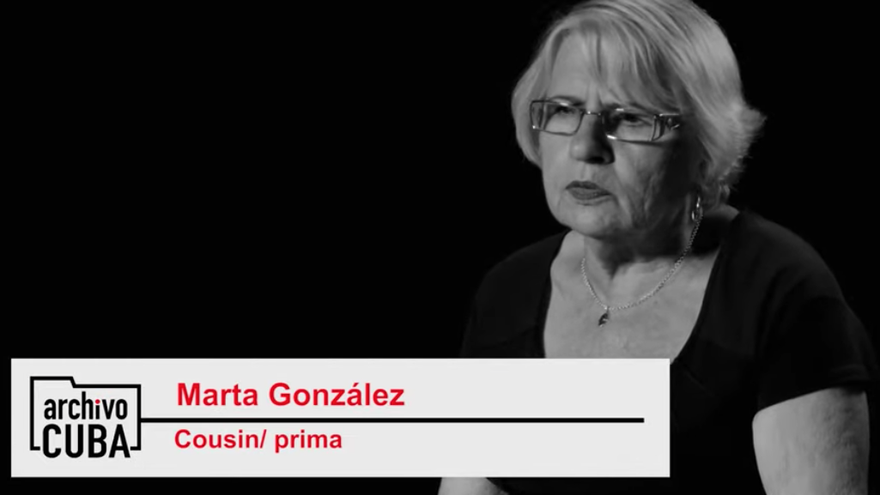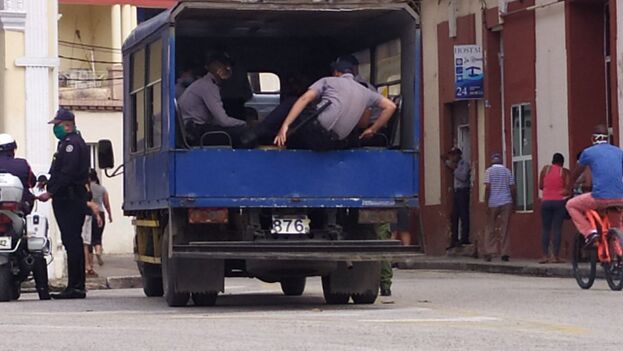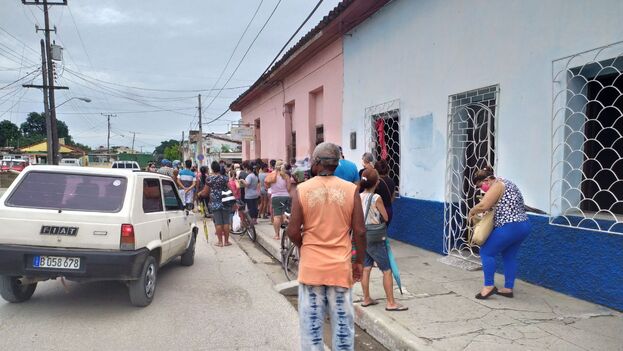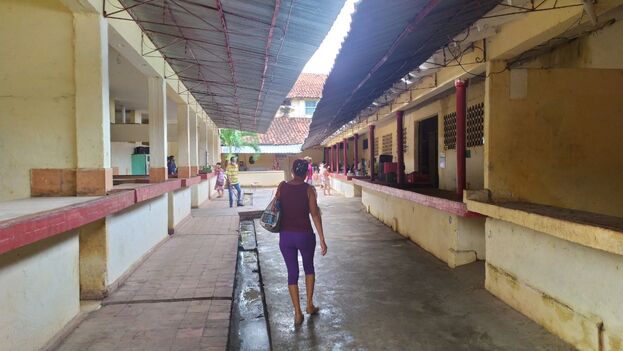I usually go to two relatively close towns on Sunday afternoons: Caonao and Tabor. A couple of weeks ago my transportation was a moped. It was threatening rain, but when it was time to leave, not a drop had fallen. I went to one town, then the other. Upon returning, a light drizzle began, which a short while later turned into a steady rain and ended up being a torrential downpour, charged with electricity.
With cane fields to the right and to the left, the only option was to keep going, trying not to end up on the ground. Lightning and its administration belong to the Lord of the heavens, so better not worry about what we are not given control of. For technical reasons related to humidity that I don’t know too much about, the electric moped began to accelerate by itself, while I focused on maintaining my balance.
My tunnel vision prevented me from realizing the possibility of cutting off power by turning it off. In horror, I saw a bus coming at full speed, then a car, then another bus, bouncing in the puddles. My mind shot up. Paralyzed on the moped, which had taken on a life of its own and was going at full speed down a muddy road, I was soaked to the bone, with my helmet moving in all directions … my mind went blank. continue reading
Later, the moped’s engine suddenly died. Afterwards, they explained to me that the safety brake had engaged, but I didn’t know it, so the second stage began, dripping water, moped in hand, walking, as lightning flashed right and left.
In such a condition, there are only two things to do: complain and curse the galaxy or think. And I thought, I thought that beyond my passion for serving my people, things would not have to be like this, I thought of all the people who experience similar situations in each downpour, because they have to walk on foot, or ride a bicycle or a horse cart, I thought of so many people with precarious houses where it rains more inside than outside, and I thought I could have had an accident, I could have died, and that there were things that I had never spoken. And I was afraid, not of dying, but of dying without having said what was inside my soul.
I love chemistry, and I am seduced by reactions. For a long time, every time I think about the situation my people are in, a chemical formula comes to mind that explains why my people are the way they are, and my formula is this:
(Fear + Lie + Division) x Complicit Silence = Oppression.
We are afraid, we are born in fear, we grow in fear, we live in fear.
Fear is a feeling of insecurity in the face of something that can harm us and that we cannot control. Fear is automatic and uncontrollable, and like all sensations, it is not manageable by one’s will. The efficacy of fear does not lie in our emotions, but rather, it works because it paralyzes one’s willpower. Fear kidnaps one’s will by telling it horror stories.
Cuba is a big prison where, if you behave badly, they put you in a smaller one
We don’t have much power over the fear we “feel,” but overcoming paralysis and acting on what we want to do depends on our decision. Willpower is not subject to feelings, and that is our strength. Doing something can perfectly coexist with the fear of doing it.
Cuba is a big prison where, if you behave badly, they put you in a smaller one. And, at the end of the day, it’s still a prison and we feel controlled. We are afraid to say what we think, to say what we want. We are afraid that, one way or another, they will interrupt our education or our jobs, that they will make our life more difficult than it already is. We are afraid of being summoned and “reprimanded”, warning us of our “bad behavior”.
And meanwhile, we continue singing our national anthem and repeating that “to live in chains is to live immersed in dishonor and ignominy”. Let’s put it another way, let’s see if we understand it: what we are saying is that “living without honor, without respect, without virtue, is to live as slaves”. And doesn’t slavery equate to living in fear of saying what we believe and think? And isn’t slavery not being able to make decisions about our own lives and about our country’s life? And isn’t slavery being limited to just surviving or leaving our country?
Let’s understand it once and for all: we will always be afraid, and we will never act if we do not learn to live in spite of our fears if we do not act according to our conscience while our fears flow through each one of our veins.
I always wanted to say this: Communism is a big lie. Everything is a lie. Goebbels, Hitler’s ideologue, said: “A lie, repeated a thousand times, turns into the truth.”
Cuba is like a great theater, where we lie to each other as part of a play that no longer needs to be rehearsed:
That we are a medical power: a lie.
That our education system is extraordinary: a lie.
That we are internationalists out of sheer generosity: a lie.
That our National Television News displays people’s reality: a lie.
That the demonstrations on May 1st and July 26th are normal and voluntary: a lie.
That the rapid response brigades are nothing other than the spontaneous reaction of angry people defending their Revolution: a lie.
That we do not have political prisoners: a lie.
That human rights are respected in Cuba: a lie.
That opposition and dissent do not exist: a lie.
That we unconditionally support socialism as a people: a lie.
That we believe that the electoral system is the best in the world: a lie.
That a dignified old age life is guaranteed: a lie.
That we are happy here: a lie.
Cuba is like a great theater, where we lie to each other as part of a play that no longer needs to be rehearsed
But we are used to lying, and we are afraid of the truth, and we teach our children to act in this coarse show, truly hoping that one day “something” will happen that will allow us to exist and not pretend, without realizing that if we all said what we believe and what we think, if we all spoke the truth, this system would collapse.
Divide and conquer. We cannot deny that the ancient Romans were wise. One of the greatest successes of the communist system is to have brother against brother come to blows, creating a network of espionage and urban accusation that plunges us into continuous paranoia. No one trusts anyone and we all take care of everyone, because no one knows “who you are talking to”.
We shield ourselves from our neighbors, co-workers, even our own family members. We calculate each word, each reaction, and like snails in their shells, we expose ourselves more or less according to the environment, but always with caution, always lowering our voices when faced with certain issues, always afraid of “selling ourselves on a platter” to someone who later will report, not for money and not even for conviction, but because he believes that this is the way he can best survive.
And in the midst of all this, silence. We see, we hear, we know … but we do not speak. As passive spectators, we wait for others to talk, and we spy on the reactions to what they say, ready to turn our eyes the other way, so as to not compromise.
And here, I cannot help to painfully say that I suffer my bishops’ silence. It is not true that the Church has not spoken, it is not true, because we are all the Church, and many lay people, priests, religious, and some bishops, personally, have said what we think and we are continuing to say it.
But the bishops are a body, they are a defined instance we all observe, waiting.
And here, I cannot help but painfully say that I suffer the silence of my bishops
This country needs a change, it needs a transition, it needs to live and stop dragging its existence, and at this moment, in my opinion, only the Catholic Church is in a position to lead a dialogue and propose a transition.
There are many people pushing in the right direction, many committed, tenacious and courageous people. There are many people abroad supporting these people and fighting for this transition, but they do not have the power to bring about internal change from where they are.
Internal opposition is divided, without understanding that, like the legendary Voltus V, it can only be strong if individual claims are put aside and worked as a whole. When I have traveled abroad and been asked how opposition in Cuba is, I shrug my shoulders and can only say: “I don’t know”, because it is not clear to me where to look, and people do not have a handle on any concrete proposal. The opposition would be much more effective if it were united. If they agreed, we could all look to it then, not only with more confidence but with more clarity. After all, one way or another, everyone seeks this land’s freedom and, if they worked together, they would find much more support from people who need and yearn for a different path.
The Protestant Churches are divided, some in favor, others against the system, and they do not have a single body to coordinate a social project.
That is why our people look to the bishops, and expect a clear position in favor of justice and freedom; in short, the Gospel.
Vargas Llosa tells in his book La Fiesta del Chivo, about Trujillo’s dictatorship in the Dominican Republic, the moment in which the bishops positioned themselves against the dictatorship. I don’t know if the anecdote is historical or not, but Vargas Llosa places in his Catholic protagonist’s lips that phrase, full of pride: “At last, my Church speaks!
I don’t know what reactions this chronicle may bring, nor do I have bigger expectations, but I have said what I had hidden between my chest and my back. Now I can continue to go to towns in my moped, whether it rains or anything else. Now I am at peace.
This is today’s Cuba too.
Editor’s note: Alberto Reyes is spiritual director of the San Agustin Seminary and pastor in Esmeralda (Camagüey). This article was originally published on the author’s Facebook page.
Translated by Norma Whiting
____________
COLLABORATE WITH OUR WORK: The 14ymedio team is committed to practicing serious journalism that reflects Cuba’s reality in all its depth. Thank you for joining us on this long journey. We invite you to continue supporting us by becoming a member of 14ymedio now. Together we can continue transforming journalism in Cuba.

![]() 14ymedio, Yoani Sanchez, Generation Y, Havana, 11 November 2020 — Two years ago, after a long period of requests and expectations, the American tractor manufacturer Cleber was excluded from the projects approved to locate in Cuba’s Mariel Special Development Zone, despite offering much-needed equipment for Cuban agricultural producers. The tractor being promoted by the company — compact, light and nicknamed Oggún — would have solved many of the problems that farmers face in Cuba.
14ymedio, Yoani Sanchez, Generation Y, Havana, 11 November 2020 — Two years ago, after a long period of requests and expectations, the American tractor manufacturer Cleber was excluded from the projects approved to locate in Cuba’s Mariel Special Development Zone, despite offering much-needed equipment for Cuban agricultural producers. The tractor being promoted by the company — compact, light and nicknamed Oggún — would have solved many of the problems that farmers face in Cuba.

